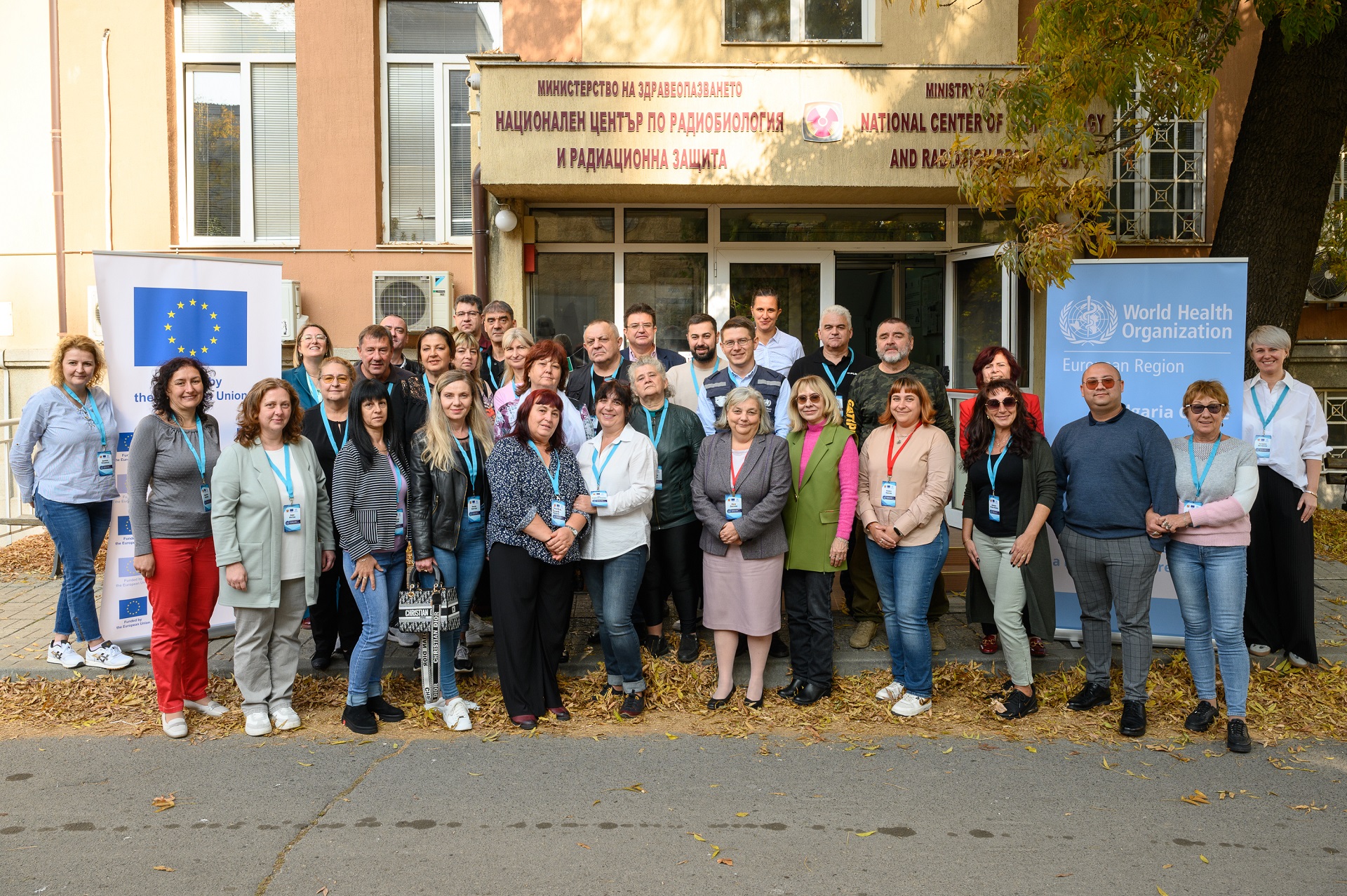Event highlights
21 November 2024
Cross-sector coordination is considered one of the core requirements for effective preparedness and response to health emergencies under the International Health Regulations (2005). This is consistent with the experience gained from the Chernobyl and Fukushima nuclear accidents, where effective communication and coordination were vital in managing radiation emergencies.
To strengthen national preparedness to radiological and nuclear emergencies in Bulgaria, WHO and the Ministry of Health of Bulgaria organized a training workshop that brought together relevant national stakeholders, including health-care providers and emergency responders, such as the National Center for Radiobiology and Radiation Protection of Bulgaria, regional health inspectorates, and the General Directorate for Fire Safety and Population Protection.
The training focused on emergency response protocols for personnel involved in radiation emergency response and emphasized the need for an effective medical response framework, which includes policies and regulations. Participants gained insights into the biological effects of ionizing radiation and learned about radiation protection principles and measures essential for reducing the radiation exposure risk for responding staff and patients during emergencies.
Moreover, case studies were discussed as examples of emergency interventions highlighting the role of mental health and psychosocial support for those affected. Recognizing and addressing the importance of risk communication and community engagement is essential for comprehensive crisis management.
The discussions also reflected a commitment to international cooperation, sharing best practices and lessons learned from past emergencies to strengthen collective response capabilities.
In conclusion, this seminar is a timely initiative in light of the ongoing conflict in Ukraine, which poses additional risks to the nuclear safety of eastern Europe. The measures to strengthen preparedness are crucial for minimizing the impact of potential emergencies, contributing to improved public health and safety in the region.
Event notice
28 October 2024
WHO, in collaboration with the National Center for Radiobiology and Radiation Protection of Bulgaria – a member of the Radiation Emergency Medical Preparedness and Assistance Network, hosted a 3-day training from 28 to 30 October 2024. Supported financially by the European Union, the event focused on strengthening Bulgaria’s preparedness and response capabilities against potential radiological and nuclear threats.





